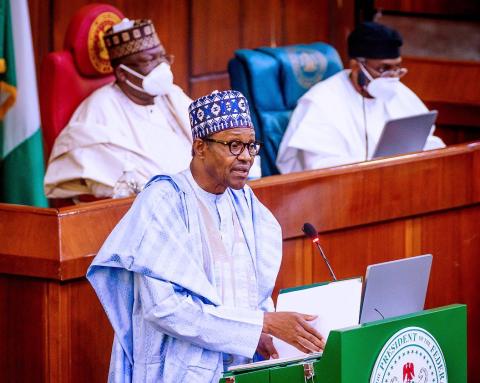
The Nigerian government is also leading the call for African countries to be present when decisions on illegal financial flows are taken at global level.
The Nigerian government has pleaded with countries that are the main destinations for illicit financial flows to freeze, seize and repatriate illicit funds.
The Minister of Finance, Budget and National Planning, Zainab Ahmed, stated this on Tuesday at the virtual International Conference on Illicit Financial Flows, IFFs, and Asset Recovery.

According to Mrs. Ahmed, countries that are the main destination for IFFs and their proceeds should take urgent steps to assist in combating this scourge, by preventing the inflow of illicit funds, freezing or seizing assets already in the country, and ensuring that illicit funds and proceeds are repatriated.
The Nigerian government is also leading the call for African countries to be present when decisions on illegal financial flows are taken at global level.
She said, “Africa must have a seat at the table and be well-represented during negotiations on illicit funds and their proceeds. The resulting domestic revenue losses from illicit financial flows are significant, putting developing countries and the entire African region at risk of not achieving sustainable and inclusive development, especially in the wake of the coronavirus pandemic.
“Africa is in a race to the bottom to attract foreign direct investments, FDIs, as a result of the current international tax practices and treaties.
“Commercial activities (particularly aggressive tax avoidance and tax evasion, through trade mispricing, abusive transfer pricing, profit shifting and tax arbitraging) account for approximately 65 percent of illicit financial flows across Africa.”
Mrs. Ahmed said in Nigeria and across the African continent, countries “suffer various forms of IFFs, including tax evasion and other harmful tax practices, the illegal export of foreign exchange, abusive transfer pricing, trade mispricing, mis-invoicing of services, illegal exploitation and under-invoicing of natural resources, organised crimes, and corruption.”
The minister warned that “unless checked, IFF will continue to significantly erode domestic revenues, enable corruption, threaten economic stability and sustainable development, divert money from public priorities and hamper government’s efforts to mobilise domestic resources and recover better.”